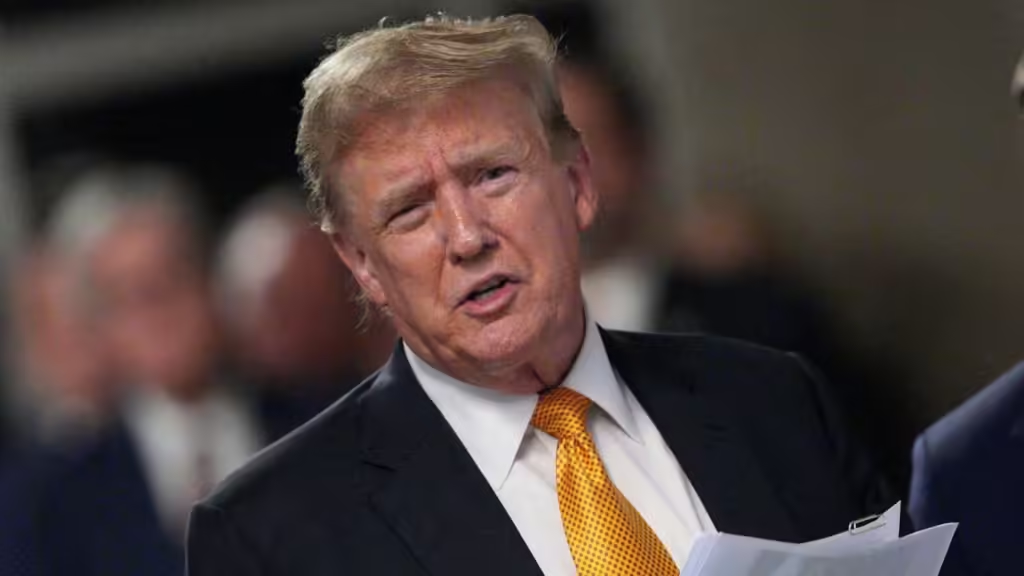Mark Cuban: Trump Could Beat Biden Due to Crypto

QUICK TAKE
- Billionaire Mark Cuban casts doubt on both presidential candidates’ understanding of crypto.
- Cuban emphasizes that cryptocurrency will be a pivotal issue in the upcoming 2024 election.
- Cuban warns Biden must choose between SEC Chair Gary Gensler and crypto voters to avoid losing the White House.
Billionaire entrepreneur Mark Cuban has highlighted the potential impact of cryptocurrency on the 2024 presidential election, suggesting it could be a deciding factor in President Joe Biden’s bid for re-election. Cuban, known for his outspoken views on the cryptocurrency industry, pointed out that Biden’s unwavering support for Securities and Exchange Commission (SEC) Chairman Gary Gensler might cost him dearly among crypto enthusiasts.
Cuban’s remarks, shared on the social media platform X, come amid growing speculation about the role digital assets will play in shaping voter preferences. While expressing skepticism about both Biden and former President Donald Trump’s understanding of cryptocurrency, Cuban underscored the significant influence crypto voters could wield in November 2024.
“I have said many times that Biden has to choose between Gensler or crypto voters or it could cost him the White House,” Cuban commented. “As far as who will be appointed. I wouldn’t take anything as a given.”
Cuban’s critique of Gensler is well-documented. He has consistently argued that the SEC’s stance under Gensler’s leadership has been detrimental to the crypto industry. According to Cuban, the SEC has not only failed to protect investors from fraud but also made it increasingly difficult for legitimate cryptocurrency firms to operate.
“Crypto voters will be heard this election,” Cuban asserted on May 10, emphasizing the rising political engagement within the crypto community. This sentiment reflects a broader frustration with regulatory hurdles that many in the industry believe are stifling innovation and growth.
Gensler’s approach to cryptocurrency regulation has been a flashpoint for contention. He recently criticized the Financial Innovation and Technology for the 21st Century Act (FIT21), which aims to establish a comprehensive framework for regulating digital assets. Gensler argued that the bill could create regulatory loopholes and compromise decades of legal precedent, thereby endangering investors and the stability of capital markets.
Despite Gensler’s opposition, the FIT21 bill has garnered significant support, passing the United States House of Representatives on May 22. The bill seeks to transfer some regulatory responsibilities from the SEC to the Commodity Futures Trading Commission (CFTC), a move proponents argue will provide clearer guidelines and foster innovation within the crypto space.
President Biden has also expressed reservations about FIT21, but he has shown a willingness to collaborate with Congress on developing additional regulatory frameworks for digital assets. This nuanced stance indicates an acknowledgment of the growing importance of the cryptocurrency sector while balancing the need for investor protection and market integrity.
The tension between regulatory oversight and industry innovation is not new, but it has gained renewed urgency as the 2024 election approaches. The crypto community, energized by recent regulatory battles, is poised to make its voice heard at the ballot box.
For Biden, the dilemma is stark. Aligning closely with Gensler and maintaining the current regulatory trajectory could alienate a significant portion of the crypto electorate. Conversely, distancing himself from Gensler or adopting a more crypto-friendly stance might appease these voters but could also be perceived as capitulating to industry pressure at the expense of investor protection.
Trump, on the other hand, presents an intriguing contrast. Although his direct engagement with cryptocurrency has been limited to fundraising through NFTs, his campaign could leverage the growing discontent among crypto enthusiasts to gain a strategic advantage. By positioning himself as more supportive of the crypto industry—or at least less antagonistic—Trump could potentially attract a segment of voters disillusioned with the current administration’s policies.
Cuban’s observations reflect a broader trend where digital assets and their regulation are increasingly intersecting with mainstream political discourse. The outcome of the 2024 election could have profound implications not just for the future of cryptocurrency regulation but also for the broader relationship between technological innovation and government oversight.
In the coming months, as candidates outline their platforms and strategies, the crypto community will be watching closely. For many voters within this community, the election represents a pivotal moment to advocate for a more favorable regulatory environment that fosters innovation while protecting consumers.
As the political landscape evolves, one thing is clear: cryptocurrency is no longer a fringe issue but a central topic of debate with the potential to influence the highest levels of government. Whether Biden will heed Cuban’s warning and recalibrate his approach, or whether Trump will seize the opportunity to court crypto voters, remains to be seen. What is certain, however, is that the crypto vote will be a significant factor in the 2024 presidential race.



